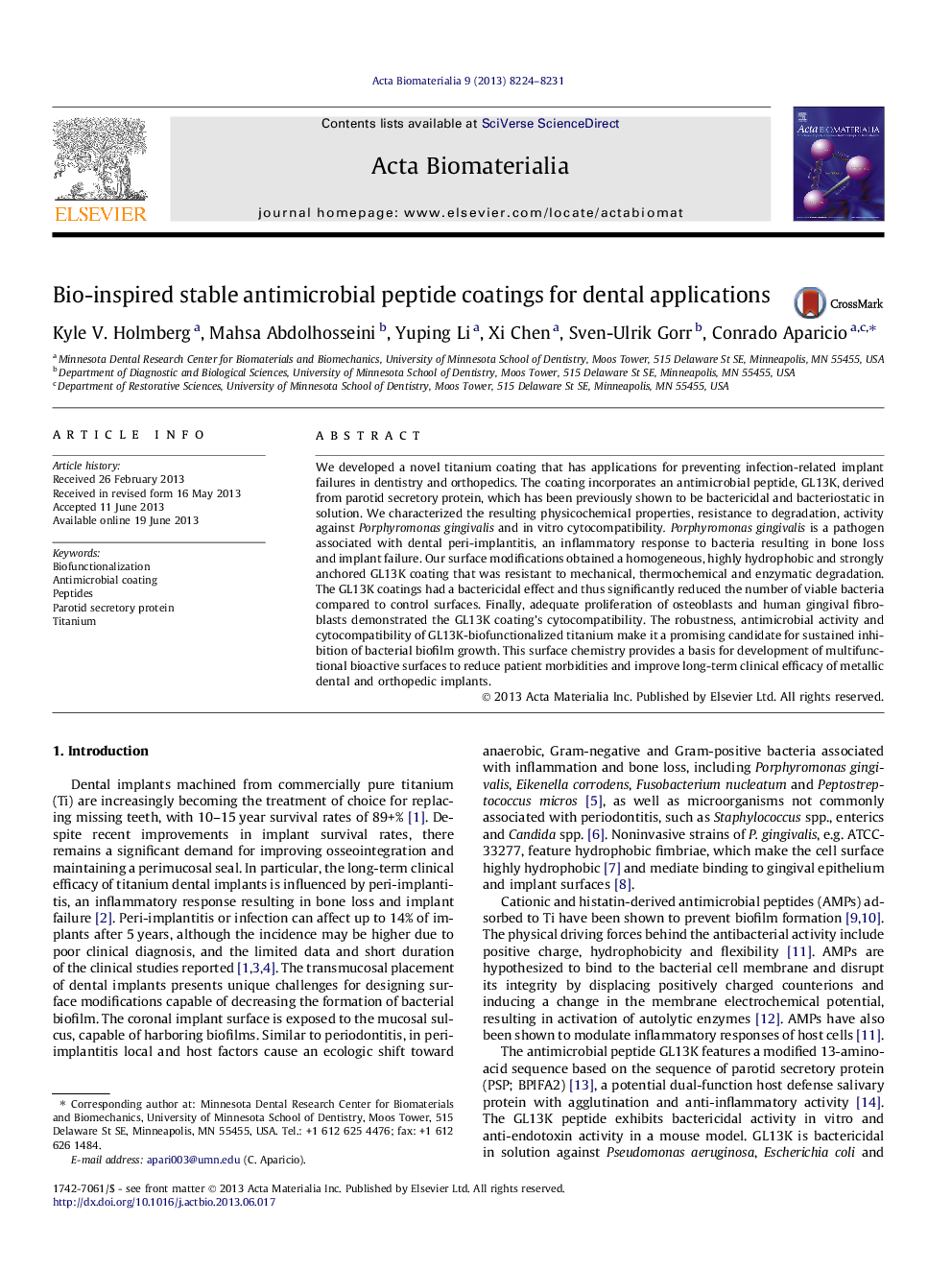| Article ID | Journal | Published Year | Pages | File Type |
|---|---|---|---|---|
| 10159788 | Acta Biomaterialia | 2013 | 8 Pages |
Abstract
We developed a novel titanium coating that has applications for preventing infection-related implant failures in dentistry and orthopedics. The coating incorporates an antimicrobial peptide, GL13K, derived from parotid secretory protein, which has been previously shown to be bactericidal and bacteriostatic in solution. We characterized the resulting physicochemical properties, resistance to degradation, activity against Porphyromonas gingivalis and in vitro cytocompatibility. Porphyromonas gingivalis is a pathogen associated with dental peri-implantitis, an inflammatory response to bacteria resulting in bone loss and implant failure. Our surface modifications obtained a homogeneous, highly hydrophobic and strongly anchored GL13K coating that was resistant to mechanical, thermochemical and enzymatic degradation. The GL13K coatings had a bactericidal effect and thus significantly reduced the number of viable bacteria compared to control surfaces. Finally, adequate proliferation of osteoblasts and human gingival fibroblasts demonstrated the GL13K coating's cytocompatibility. The robustness, antimicrobial activity and cytocompatibility of GL13K-biofunctionalized titanium make it a promising candidate for sustained inhibition of bacterial biofilm growth. This surface chemistry provides a basis for development of multifunctional bioactive surfaces to reduce patient morbidities and improve long-term clinical efficacy of metallic dental and orthopedic implants.
Related Topics
Physical Sciences and Engineering
Chemical Engineering
Bioengineering
Authors
Kyle V. Holmberg, Mahsa Abdolhosseini, Yuping Li, Xi Chen, Sven-Ulrik Gorr, Conrado Aparicio,
